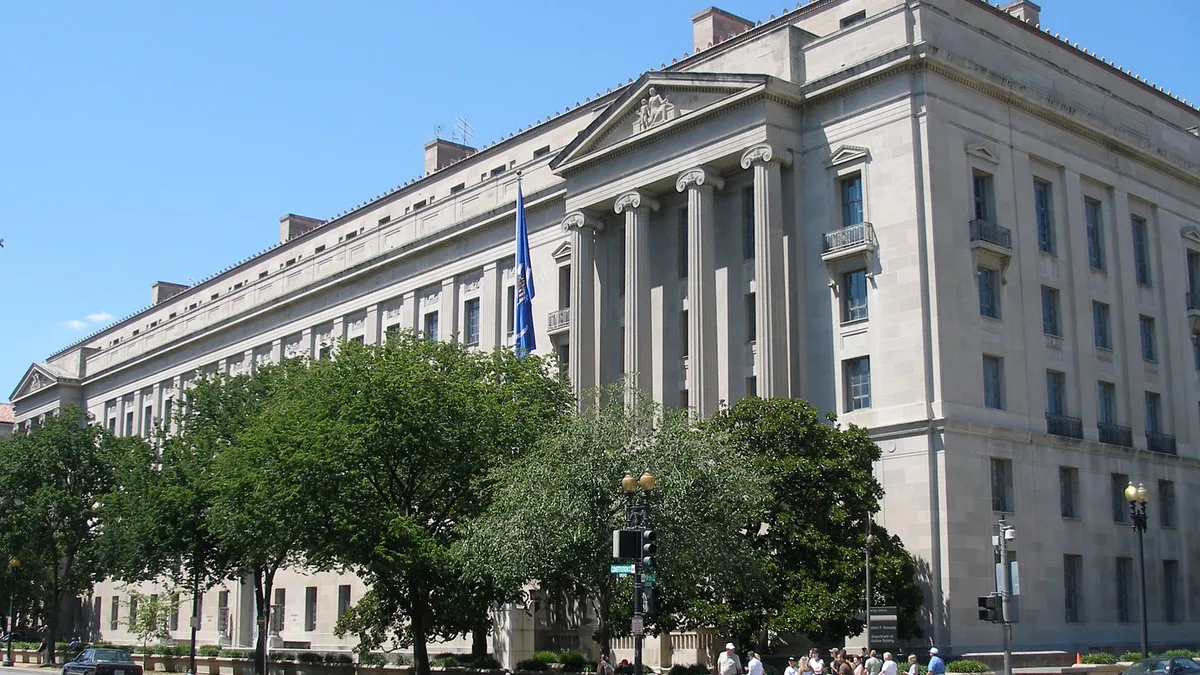Dive Brief:
-
The Bank of Nova Scotia (Scotiabank) agreed to pay $127.4 million to resolve criminal charges related to a price manipulation scheme involving unlawful trading activity in precious metals futures contracts, the bank and U.S. authorities announced Wednesday.
-
The fine represents a deferred prosecution agreement (DPA) reached with the Department of Justice, as well as three civil cases levied by the Commodity Futures Trading Commission (CFTC).
-
In a statement, CFTC Chairman Heath Tarbert credited advancements the agency made in data analytics. "Our ability to go through the electronic order book and look across markets has enabled the CFTC to not only spot misconduct, but also to uncover false and misleading statements,” he said. "Wrongdoers now have increasingly fewer ways to conceal their misconduct and face an even more unified front from civil and criminal authorities.”
Dive Insight:
For more than eight years, four Scotiabank traders placed thousands of unlawful orders for precious metals futures contracts in an attempt to manipulate prices — a practice known as spoofing — to benefit themselves and the bank, authorities said.
Scotiabank was penalized $800,000 in 2018 for spoofing in the gold and silver futures markets, but statements the bank made to the CFTC during an investigation of the incident were proven false. Based on the true scope of the bank's wrongdoing, the CFTC levied a $42 million penalty, plus $17 million for making false and misleading statements. The bank is also required to pay more than $6.6 million in restitution and more than $11.8 million in disgorgement.
A separate order requires the bank to pay $50 million to settle an enforcement action for swap dealer business conduct, compliance and supervision failures that took place over seven years.
"This deferred prosecution agreement — which includes a criminal monetary penalty at the top of the United States Sentencing Guidelines range, money to compensate victims, and an independent compliance monitor — reflects the seriousness of the offense and the state of Scotiabank's compliance program, and further helps to promote the integrity of our public markets," Robert Zink, chief of the Justice Department's criminal division fraud section, said in a statement.
As part of the DPA, Scotiabank agreed to cooperate with the Justice Department in any ongoing investigations and prosecutions relating to the misconduct, as well as modify its compliance program, authorities said. The bank also agreed to retain an independent compliance monitor for three years.
"The bank's actions were designed to lead others to trade in ways they never would have without what was believed to be legitimate market activity," William Sweeney, head of the FBI's New York office, said in a statement.
Scotiabank prepared for the fines by reserving funds during prior quarters, it said in a statement Wednesday.
"At Scotiabank, we understand that in order to maintain the trust of our stakeholders, we must adhere to trading-related regulatory requirements and compliance policies," the bank said in a statement. "We are committed to adhering to these standards."











